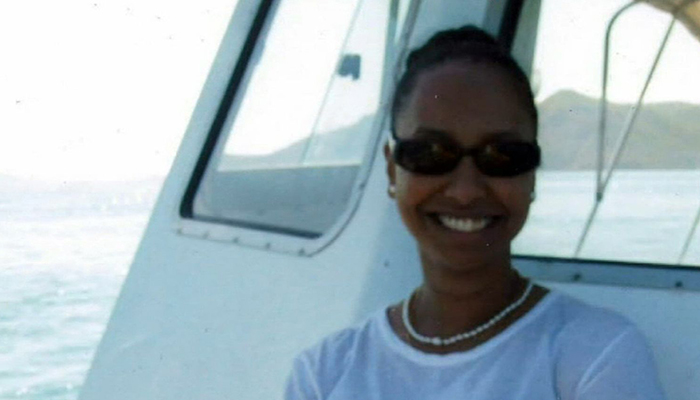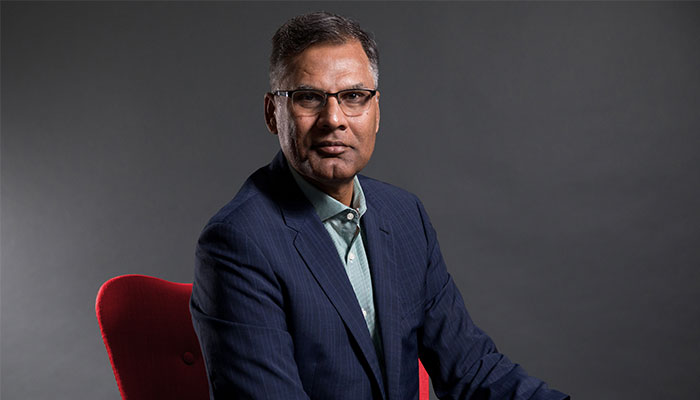Like most of her colleagues, Rajina Subramaniam kept a few personal items at her workstation in the Sydney office of financial giant ING Australia, including a stack of cardboard boxes under her desk. But instead of containing bundles of old paperwork and a spare pair of shoes, Subramaniam’s held millions of dollars’ worth of jewellery and designer clothing.

Office exploits: Accountant Rajina Subramaniam's corporate crime spree was brought to an end by an anonymous whistleblower.
This trove of luxury items was only a fraction of the proceeds of the staggering $45 million the then 42-year-old accountant had stolen from her employer – a crime reported by an anonymous whistleblower, and for which she received a 15-year prison sentence in 2012.
According to Professor Rahat Munir, head of the Department of Accounting and Corporate Governance at Macquarie University’s Business School, theft by their employees is only one of the many ways in which organisations can fall victim to fraud.
A war on many fronts
“Frauds might be financial, non-financial, or corruption-related. Some involve giving misleading information to the public, typically in a company’s annual report or financial statements, with the aim of increasing profits,” he says.
Procurement and tendering processes, often for multimillion-dollar contracts, present opportunities for bribery- and corruption-related frauds to flourish. “Procurement frauds such as payment of kickbacks are prevalent in Third World countries, but a lot of these types of frauds happen in Australia as well,” says Munir.
A key reason financial frauds happen is employees being hired without proper due diligence and background checks.
Frauds deriving from information theft are on the rise in Australia and internationally. According to global accounting firm KPMG, banks worldwide say that cyber-related crime, often leveraging information obtained from data breaches, is their most significant fraud challenge.
Such data-related corporate frauds usually rely on inside information and the complicity of one or more employees. “This is a common issue we see when data is unlawfully obtained by external parties – there’s always someone internal involved,” says Munir, “meaning there’s also the potential for a whistleblower to come forward.”
Fingers in the till
Unlawful behaviour by employees often involves invoice-related wrongdoing, sometimes in collusion with suppliers, resulting in the issue of overinflated invoices or payments for phantom services.

Shooting the messenger: employees who witness financial wrongdoing fear being stigmatised at work if they blow the whistle, the research found.
With some mid-level or even junior employees controlling financial transactions often running into the millions of dollars, most of Australia’s corporations are naturally careful who they place in these positions of trust. Yet many may be unwittingly hiring people with very shady pasts.
“A key reason financial frauds happen is employees being hired without proper due diligence and background checks,” says Munir. “Some companies are inadvertently hiring people who may end up defrauding them. It’s a common problem.”
He says this scenario is particularly prevalent in multi-cultural societies such as Australia, where thousands of migrants apply to join the workforce every year and whose overseas credentials can be difficult to verify.
Too much power, too little supervision
Sloppy recruitment procedure is only one example of how a lack of rigour around corporate governance enables employee fraud to proliferate. “Credit managers, accountants, payroll managers – these people are given huge financial authority to manage transactions within a company,” says Munir. “Often the power and responsibility are concentrated in just one or two people. Without robust internal compliance mechanisms, control becomes very difficult.”

Powerful temptation: from small things, big crimes grow according to Corporate Professor Professor Rahat Munir.
The concentration of financial authority in one person can create irresistible temptation, whereby formerly upstanding citizens become criminals via the sheer opportunism that presents itself. ING’s $45 million fraudster Rajina Subramaniam cited a lack of supervision as one of the key factors behind her crime. “My manager is so slack... he just left it open for me,” she is reported to have said after her arrest.
Often, employee thefts start small and are never intended to be ongoing, which can make them hard to detect in their early stages. Danika Lena was a 26-year-old legal assistant in a Sydney law firm who began stealing from a Macquarie Bank trust account administered by her employer. Her first few thefts were for only $5,000 at a time – but the amounts increased until by the time of her arrest less than two years later she’d stolen $1.3 million, a crime for which she received a four-year jail term in 2018.
Greg Medcraft, chairman of corporate watchdog the Australian Securities and Investments Commission (ASIC), controversially declared in 2014 that Australia was a “paradise” for white collar criminals, and that the only realistic response was harsher jail terms and bigger penalties. Despite this, corporate wrongdoing is on the rise in Australia, with reported frauds totalling $482 million in the year to September 2017, according to KPMG. But this may represent only a fraction of the total value.
“It’s estimated that only around 50 per cent of frauds that happen in a company are ever reported – either internally, or to external authorities,” says Munir.
To blow the whistle, or not?
Professor Munir’s research into the role of whistleblowers in disclosing fraudulent behaviour found that many who had witnessed financial wrongdoing hadn’t reported it. Many feared that by blowing the whistle on a workmate, they would be stigmatised within the company. Some even feared being threatened by colleagues.
If someone suspects a colleague of wrongdoing but that person has powerful connections within the company, it can act as a deterrent.
Other reasons for turning a blind eye were more personal. A potential whistleblower may be faced with a conflict of loyalties if the person they suspect is someone they like or are friends with. Conversely, the research found that whistleblowers were more likely to speak out if they disliked the person they suspected of wrongdoing.
“Power politics can also come into it,” says Munir. “If someone suspects a colleague of wrongdoing but that person has powerful connections within the company, it can act as a deterrent. So the more senior the person committing the fraud, the less likely it is that a whistleblower will come forward. It’s more likely that if they’re detected it will be during an audit process.”
Typically, the initial reporting of possible wrongdoing will come from a whistleblower, and will then trigger an investigation through audit and other processes. However, without the initial tipoff, it’s often hard for audit processes alone to detect fraudulent behaviour.
“Audit processes are designed to detect suspicious transactions, and are increasingly using data analytical techniques,” says Munir. “This is a new dimension in forensic accounting, particularly for organisations more vulnerable to frauds, such as banks and financial institutions.”
The rise of the financial detective
Forensic accountants now require a broad range of skills to combat cyber-crime and sophisticated global financial frauds. “Today’s forensic accountants need skills in data science and information technology as well as in traditional accounting,” says Munir. “Demand for forensic accountants is rising in Australia but also in the US, Europe, and especially in the UK.”
- Just how dangerous is bushfire smoke to your health?
- Tips for teen years from a former police negotiator
Despite this new breed of accountancy professional and global focus on tackling white collar crime, Munir sounds a cautionary note. “With proper governance systems and the right corporate culture in place, organisations can minimise their risk of becoming victims of fraud. But you can never reduce it to zero. There is always the human element, and some people are just psychologically predisposed to seek out and exploit loopholes.”
And with only around half of fraudulent behaviour within companies being reported, there are a lot of people stealing from their employer and getting away with it – for now.
Macquarie Business School’s Department of Accounting and Corporate Governance now offers a Master in Forensic Accounting and Financial Crime, with enrolments from 2020.



